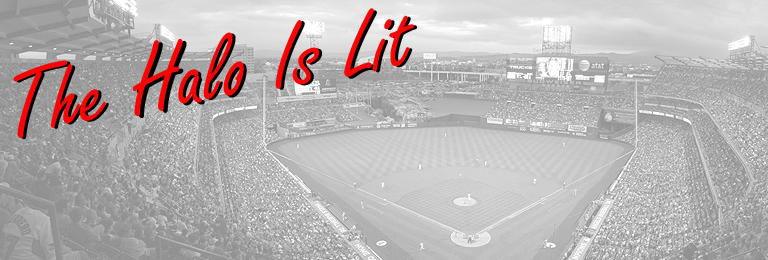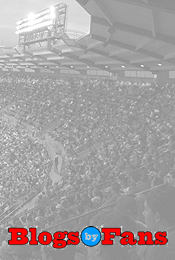Of the 132 team who have made the play-offs in the last twenty years, none of them have done it without at least one left-handed hitter. In fact, of those 132 teams, only 2 teams have had just one left-hander as the average number of lefties on a play-off team has been about 5. There have only been seven teams (out of 40) who have had less than 4 left-handed batters make it to the World Series. Why do I bring this up? As of right now, the Angels do not have a left-handed batter on their major league roster. I found this out a couple weeks ago while I was looking into Angels' split stats and noticed that the only two lefty bats last season are now gone (Garret Anderson and Casey Kotchman). Earlier this week, I read Orange County Register's Earl Bloom's blog post about this subject here: Who's Left? Angels Seem Unbalanced. This put me on a quest to find out if there's any significance to lefty/righty/switch hitters on play-off teams. I've mentioned before that I'm not a mathemagician (yes, that's spelled right...inside joke) when it comes to analyzing stats, all I have that is useful towards the accurate analysis is common-sense. I get that if A=B and B=C, then A=C. But I also get that More Money = Better Player and Better Players = More Wins, but More Money ≠ More Wins (see Yankees). I went back over the last twenty seasons and listed the amount of left-handed and switch hitting players (min 50 AB) each play-off team had on their rosters. I also listed the league rank each team had for On Base Plus Slugging (OPS) against both left and right-handed pitchers.
- On average, the play-off team with the worst OPS against right-handed pitching won the World Series.
I have no idea why this is, but the winning teams OPS rank was an average of 10.05 during the regular season against right-handed pitchers. The teams who lost in the WS had an average rank of 9.50, while all play-off teams had an average rank of 9.47. Another thing I found interesting was the teams who lost in the league division series had the best OPS average ranking (9.18) against right-handed pitchers of all play-off teams. In other words, the team who did the worst against right-handed pitchers did better in the play-offs.
- The team who won the WS had the best average OPS ranking against left-handed pitchers of any play-off team.
The eventual WS winner averaged a 9.65 regular season ranking against southpaws, while the losers had an average ranking of 10.90. All of the play-off teams had an average rank of 10.58.
So combined with the findings above, the eventual World Series winner was the best play-off team against left-handed pitching and the worst play-off team against right-handed pitching. I find this very unusual considering a team has roughly 3 times more plate appearances against right-handed pitching then they do against left-handed pitchers, yet the play-off team who does worse against righties goes further and wins more championships.
- Teams who won the WS had the lowest average number of left-handed hitters and the highest average number of switch-hitters (min 50 AB during the regular season) than the other play-off teams.
World Series winners averaged 4.50 left-handed hitters and 2.95 switch-hitters compared to 5.10 lefty and 2.60 switch-hitters for the team who lost. This is consistent with the division series too, as the team who won also had a lower average number of left-handed hitters and more switch-hitters. However, in 2008, the two teams with the most left-handed hitters faced each other in the Series (Tampa Bay had 10 and Philadelphia was tied with Boston with 7 lefties).
This study doesn't take in to account any teams' pitching stats. So it's very possible a weak hitting team with lights-out pitching can win the World Series. An example of this is the 1995 Atlanta Braves who won the World Series after leading the major leagues with a team ERA of 3.44, and in spite of finishing 21st in the major leagues in runs scored (the Braves beat the Cleveland Indians in the World Series even though the Indians scored almost 200 more runs than the Braves during the regular season). What does this mean for the Angels and their lack of left-handed hitting? I don't think it means anything. Although the Angels lack a lefty hitter, they do have 7 switch-hitters who saw time on their major league roster last season. Of those 7, four saw at least 290 at-bats, with Kendry Morales looking to get significantly more playing time in 2009. Also in the Angels favor is the signing of Brian Fuentes. Fuentes was the best left-handed free agent reliever available, able to shutdown either left-handed or right-handed hitters. The way I see it, if the typical World Series winner is the best team against left-handed pitchers, having the best left-handed pitching would be the way to win. Especially if you're a team like the Angels who don't look to be one of the top hitting clubs.


